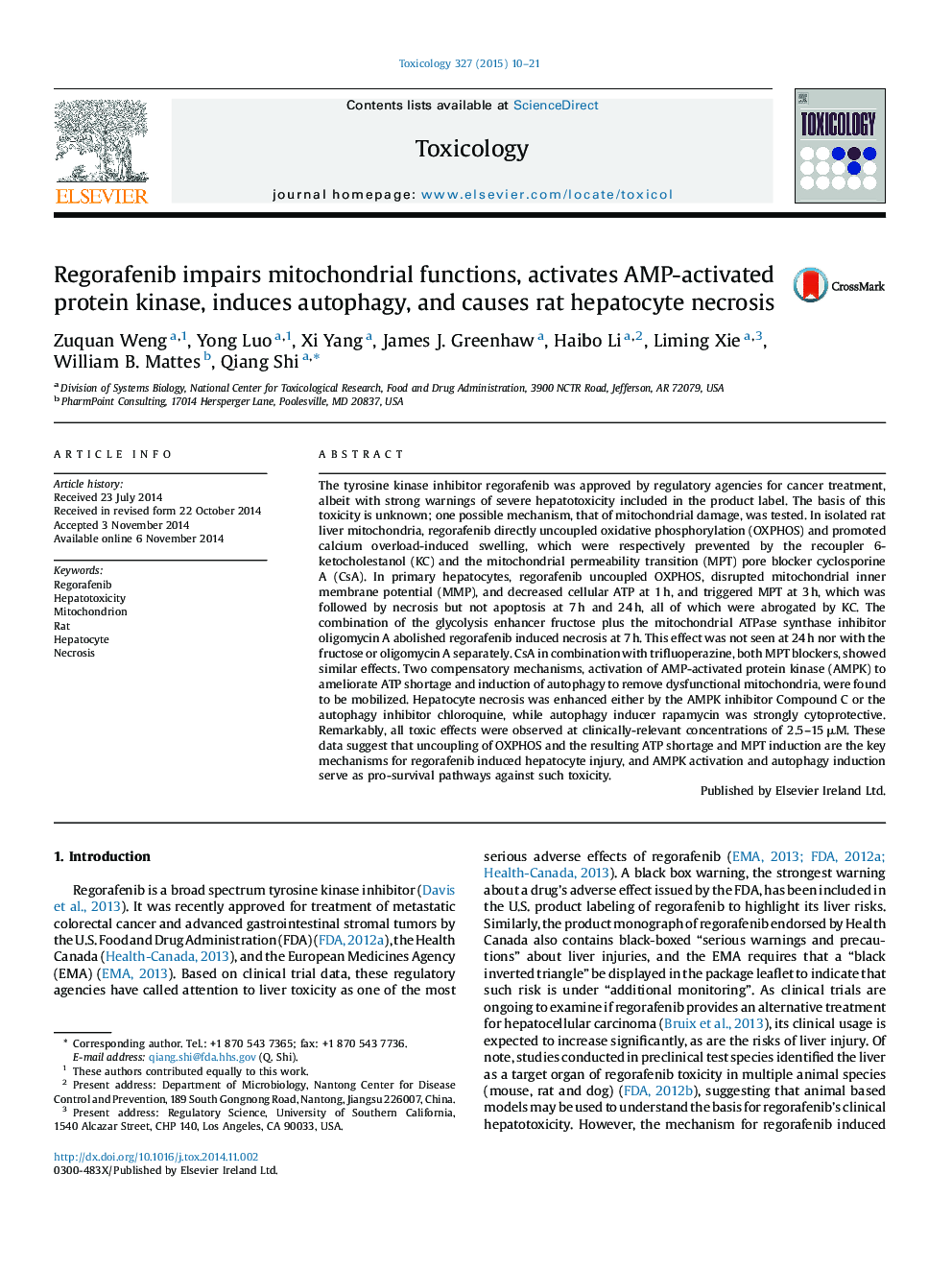| Article ID | Journal | Published Year | Pages | File Type |
|---|---|---|---|---|
| 5859186 | Toxicology | 2015 | 12 Pages |
Abstract
The tyrosine kinase inhibitor regorafenib was approved by regulatory agencies for cancer treatment, albeit with strong warnings of severe hepatotoxicity included in the product label. The basis of this toxicity is unknown; one possible mechanism, that of mitochondrial damage, was tested. In isolated rat liver mitochondria, regorafenib directly uncoupled oxidative phosphorylation (OXPHOS) and promoted calcium overload-induced swelling, which were respectively prevented by the recoupler 6-ketocholestanol (KC) and the mitochondrial permeability transition (MPT) pore blocker cyclosporine A (CsA). In primary hepatocytes, regorafenib uncoupled OXPHOS, disrupted mitochondrial inner membrane potential (MMP), and decreased cellular ATP at 1 h, and triggered MPT at 3 h, which was followed by necrosis but not apoptosis at 7 h and 24 h, all of which were abrogated by KC. The combination of the glycolysis enhancer fructose plus the mitochondrial ATPase synthase inhibitor oligomycin A abolished regorafenib induced necrosis at 7 h. This effect was not seen at 24 h nor with the fructose or oligomycin A separately. CsA in combination with trifluoperazine, both MPT blockers, showed similar effects. Two compensatory mechanisms, activation of AMP-activated protein kinase (AMPK) to ameliorate ATP shortage and induction of autophagy to remove dysfunctional mitochondria, were found to be mobilized. Hepatocyte necrosis was enhanced either by the AMPK inhibitor Compound C or the autophagy inhibitor chloroquine, while autophagy inducer rapamycin was strongly cytoprotective. Remarkably, all toxic effects were observed at clinically-relevant concentrations of 2.5-15 μM. These data suggest that uncoupling of OXPHOS and the resulting ATP shortage and MPT induction are the key mechanisms for regorafenib induced hepatocyte injury, and AMPK activation and autophagy induction serve as pro-survival pathways against such toxicity.
Related Topics
Life Sciences
Environmental Science
Health, Toxicology and Mutagenesis
Authors
Zuquan Weng, Yong Luo, Xi Yang, James J. Greenhaw, Haibo Li, Liming Xie, William B. Mattes, Qiang Shi,
